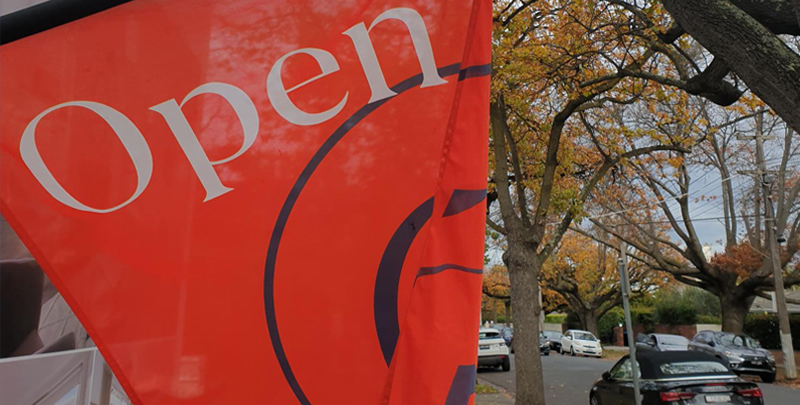While we are currently in the midst of winter, the Spring selling season is fast approaching. As such, many future vendors will now be starting to prepare their sales campaigns.
One of the most important decisions when planning a sales campaign is deciding on the method of sale. Let’s look at the most typical methods, and the best approach for you when it comes time to sell your property?
Private sale
Positives: The straight private sale method is the most common way of selling real estate in Australia. Typically, private sales are deployed for property types, where supply is higher than demand. It can offer greater flexibility from a buyer’s perspective, particularly around settlement terms.
This process enables a buyer to put forward a conditional offer, which could be subject to finance, a building inspection, or even in some circumstances, the successful sale of another property.
While these conditions may be onerous for vendors, in certain sectors of the market, more flexible terms can create increased interest and competition for a property.
A major benefit of private sales is they don’t require multiple parties to generate a successful result, compared to an auction which typically needs at least two, ideally more parties, to push up the price. Whereas in a private sale, a skilful agent has the ability to negotiate a successful result with just a single party.
Private sales also have the benefit of providing clear price expectations to the market, whether that be as a fixed figure or price range. This can create a greater comfort level and buy-in with prospective purchasers.
Negatives: On the other side of the equation, fixed prices and ranges can tend to set a price ceiling for properties.
Private sales also don’t fill buyers with the same sense of urgency – away from the emotional auction environment and without a fixed end-date. As a result, proceedings can often drag along, and it can be difficult to put pressure back on a buyer to commit.
Private sales can lack transparency. That can be a good thing from a vendor’s perspective, because it doesn’t give too much away. But it can put some buyers off, who may be less likely to put in an offer if they are unsure of what’s at play.
Off-market
Positives: A major plus for off-market sales is the privacy it affords vendors – whether that’s due to sensitive family issues, or a public figure wanting to shun unwanted attention.
Off-market sales can also be less expensive for the vendor, as there is no advertising, marketing and minimal styling fees.
Off-market sales also offer vendors more flexibility around prices, compared to advertised sales, which need to comply with certain requirements.
Also, agents will typically only be speaking with genuine buyers from their databases. They know these buyers are committed to purchasing, which restricts the number of tyre kickers.
Negatives: The major concern with off-market sales is the more limited exposure they offer, compared to an advertised campaign. As a vendor, you’re extremely reliant on an agent’s database. While it may be expansive, it’s unlikely to cover every prospective purchaser, particularly more passive buyers and newer prospective purchasers. It’s also harder to create high levels of competition between buyers in an off-market campaign.
Expressions of Interest
Positives: Expressions of interest campaigns, which are also a form of private sale, are particularly useful for upper-end and bespoke properties, likely to have a broader value range amongst different buyers.
Typically, an expressions of interest campaign has allowed flexibility for an agent to navigate around different buyer price points given their less rigid structure.
The recent introduction of the Statement of Information in Victoria, which requires a property quote price be within 10% of the sales figure has removed some of the flexibility within the process, but nonetheless, it still provides agents with a degree of agility.
Expressions of interest also have the benefit of providing an end date to the campaign, which prevents the process dragging on, as can happen with standard private sales. The end date can create a greater sense of urgency amongst buyers, and fear of missing out (FOMO).
Negatives: Many buyers are not familiar with expressions of interest campaigns, and don’t understand how it works, leading to trepidation about engaging in the process.
Auctions
Positives: Auctions work best for properties where demand outstrips supply. They are very transparent, so from a buyer’s perspective, you can see who you’re bidding against, how much your competitors are bidding, how often they’re bidding, and when they’re running out of steam.
From a vendor’s perspective, that means buyers have more confidence to throw themselves into the process. Once in, buyers’ emotions are stoked, FOMO kicks in, and social affirmation takes hold as they watch others bid. This all works in the vendor’s favour.
Negatives: Not all buyers feel comfortable bidding. The process can be quite overwhelming and confronting for many. This can impact competition and demand levels when it comes time to sell.
Also, not all buyers have the ability to bid unconditionally, which is what’s required at an auction. Some will only be able to make an offer subject to finance. An auction therefore rules out those buyers from taking part, limiting the level of competition for a property.
While the transparency that comes with an auction can be a positive, it can also work against the vendor. If a buyer sees they are the only bidder at an auction, that gives them a strong position to limit their offer and push hard in negotiations.
Take home message
So what’s the best approach for you?
First, start by looking at the similar properties in the area that have sold successfully, and what type of sales method they used.
It’s very important to understand your property and the buyer profiles it’s likely to attract. That will allow you to choose a sales method that prospective buyers are most comfortable with, and best able to participate in.
It’s important to take into account an agent’s recommendation for a method of sale, but make sure they explain the reasons behind the decision. While some agents may be more comfortable with certain methods, that doesn’t mean it’s the best decision for your property.
At the end of the day, as a vendor, it’s you who will be most impacted by the decision, so it’s up to you to make sure you’re confident in the process.




